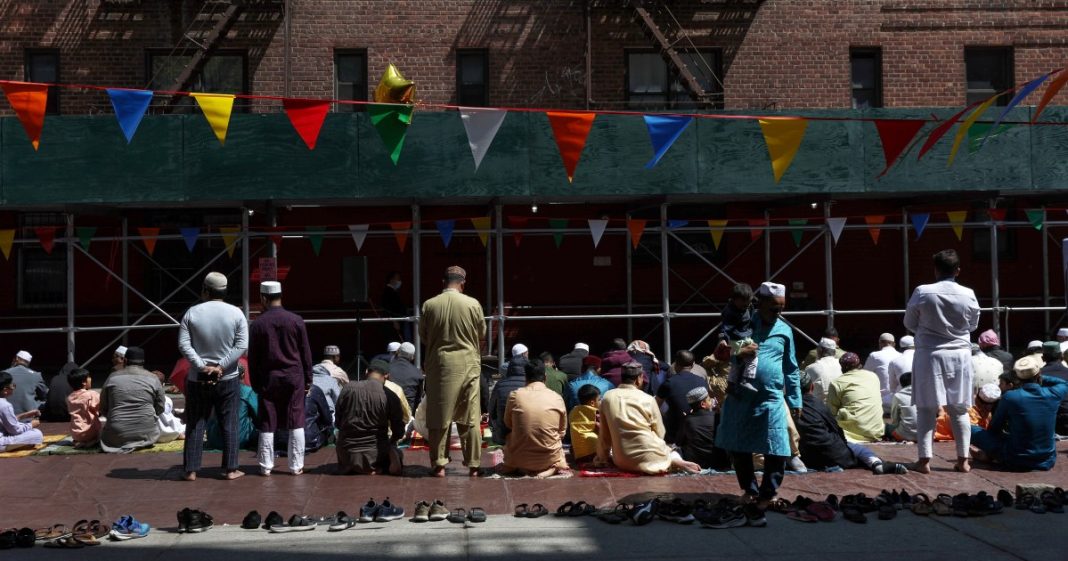Government authorities and institutions try to influence society through whatever means available to them, be it through coercion or the media, education or popular culture. This is often met with an anti-establishment reaction from the general population.
In recent times, there has been a trend on college campuses and among activist groups in the United States which may be described as anti-authoritarian. College students now often look askance at educators and university administrations and challenge what they see as an unjust exercise of power and authority. They are becoming increasingly sceptical about any kind of didactic teaching.
In society at large, influencing others from a position of authority and expertise has also become much more difficult than it has ever been. The anti-vaccination movement is an example of this resistance to expertise; it is largely based on distrust of traditional institutions and structures of knowledge.
Many people in the US are also turning away from organised religion and are now more agnostic and even atheistic than ever before. Many do not like the idea of a referee in their life – not even through established institutions and “norms”.
Against the backdrop of agnosticism, it is difficult to believe that religion can have any influence on a large group of people. Religion or faith in the Unseen is considered by many an impotent and archaic artifact; it is jettisoned in favour of material success and progress. Moral anarchy and liberalism are what many people celebrate.
But what if religion can encourage a billion people to give up their most basic human needs, such as food and water, throughout the day for a whole month?
What if belief in the Unseen can motivate a billion people to worship Him religiously for a whole month as if that is the only thing on their minds – especially at night?
What if faith can influence a billion people and inspire them to feed the hungry after fasting the whole day?
What if religious conviction can cause a community to become more altruistic and give to welfare and charity for a month?
What if the practice of faith can inspire a billion people to become forgiving of each other’s mistakes?
What if a noble civilisation of over a billion people can dispel the myth that human beings cannot live without violence, looting, robbing and killing?
What if organised religion can advocate unity among a billion people to the degree that they all perform deeds in unison and find no reason to fight over differences?
Yes. What if indeed!
Muslims reading this would know they are the beneficiaries and witnesses of this great phenomenon during the month of Ramadan. They unite in the worship of their Creator. They all seek Allah’s forgiveness and blessings.
The month of Ramadan is a time in which the Holy Quran is revealed as guidance for all. If others could observe this spectacle in the Muslim community, they would certainly see guidance toward communal unity in worship.
Muslims engaged in political and social activism must appreciate this wonder and use it as a platform to build more trust among each other, more cooperation, more respect, more optimism and a better outlook for each other. Ramadan provides a framework for the Muslim that is predicated on the idea of voluntary change, absent the force of the state and institutions.
If a Muslim can give up the most basic of human necessities and maintain that abstinence entirely without coercion, then engaging in activism in the service of justice is a minor effort in comparison.
Islam does not preach anti-authoritarian anarchism; rather it encourages the believer to recognise his own potential within a larger cosmological framework of self-discipline and understanding of ultimate Divine sovereignty. Ramadan shows that true power extends not from the long arm of temporal governmental authority, but from the voluntary acquiescence of the individual to Allah’s ultimate dominion over Creation.
Muslims who observe Ramadan must thus extend their unity and trust in the Divine to all other months of the year. Ramadan is a living month. It is alive and it gives life to an otherwise “sleepy” community. The Quran is a living book. It is alive and Muslims should see it as life-giving.
Governmental power and institutional authority over others now have competition. But it is not any form of human competition. It is a competitor who proves every year that religion and faith in the Real Power is still very much alive – despite the claims and disdain of its adversaries.
The views expressed in this article are the author’s own and do not necessarily reflect Al Jazeera’s editorial stance.







